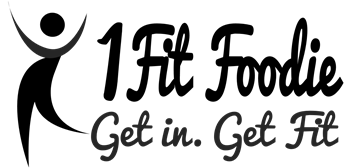Personal Training
Thursday Favorite Things
3. Sarah’s Key
Paris, May 2002: On Vel’ d’Hiv’s 60th anniversary, journalist Julia Jarmond is asked to write an article about this black day in France’s past. Through her contemporary investigation, she stumbles onto a trail of long-hidden family secrets that connect her to Sarah. Julia finds herself compelled to retrace the girl’s ordeal, from that terrible term in the Vel d’Hiv’, to the camps, and beyond. As she probes into Sarah’s past, she begins to question her own place in France, and to reevaluate her marriage and her life.
7. Being a Solid Trainer
Since starting my new job I am so in awe of everything I have been learning. Exercise is not just about getting sweaty and working hard; of course this comes into play BUT exercise is also about feeling better, moving better and performing better. The best way to train and get stronger is to mimic the bodies natural movement pattern, the way our bodies were designed to move. Why put our bodies in a compromising position that in no way carries over to real life? When I meet a client for the first time, I see them as a puzzle that I need to break down and help to get all of those pieces fit perfectly together. I used to think a good trainer just made you get in, get out, sweat and done! Now, I recognize this is in no way the case. There are many different components to a solid personal trainer that make them not only “a trainer” but a huge part of those puzzle pieces that may be missing or out of place.
A SOLID Trainer should ALWAYS:
1. Assess: There is no way we can help you progress without finding out any past information. A good trainer should be able to spot your weakness and figure out exactly what they need to do to help you progress, taking these weaknesses into consideration. Training a client without a proper assessment is like a Doctor prescribing you with medication for an illness they are unsure if you have or not! I use the FMS (Functional Movement Screening) By screening these patterns, the FMS readily identifies functional limitations and asymmetries. With the FMS screening, we can study these body patterns in an effort to determine the weak link in a persons movements.
2. Progress and Regress (with corrective exercises)
A good trainer should be able to sit down with you and share exactly what you will be doing as well as share the plan for where you could go in the future. This workout plan should be well thought out and make sense. If you currently have a trainer who changes up your program every single time you meet, this is not only pointless, but should show you that your trainer really doesn’t care to see you progress. How can you get better, stronger, leaner, reach your goals if there is no real goal at hand?
For instance. If I have a client that cannot perform a body weight squat properly, This could be due to a number of issues, most likely due to tight hamstrings, low back, hip flexors and therefore other core muscles becoming weak and inhibited. Having them perform even body weight squats will only make their weakness worse. We need to observe this and start from the ground up. You wouldn’t build a house without a solid foundation so why force the body to perform something that is shouldn’t? In this case we need to regress our client so therefore we can later progress them to be able to do a perfect squatting pattern.
Overall, you should feel a comfort with your personal trainer. You not only hired them to help you change your body and your life, but you also are going to be spending quite a bit of time and energy with them, so the time spent should be comfortable and well worth it. If you get a sketchy first impression and don’t seem to mesh well with the potential trainer—move on
4. Always Want to Learn
Education is powerful. Many times, we enter the real world after college and think that we will never have to take another test or read another text book ever again right? Well for some of us that may be true, but I find that one can never stop learning especially when it comes to their own profession. A solid trainer should always be up to speed on the latest fitness trends, new equipment, new philosophies and new certifications. Even if something they are learning is not something ‘they believe in’ it does not matter; they should still be familiar with it just for the mere chance they could have a client that DOES enjoy that something. A solid trainer should not dismissive of everything besides ‘their own way’ of training. Incorporating new ideas, exercises, workout programs and corrective techniques is all a part of the game. Your trainer should encourage you to be open minded and never afraid to try something new.
I truly believe that if you love what you do, you will be 100% fully immersed each and everyday in wanting to learn more, discover more and prove more. Your trainer needs to be motivating. Why would you spend $70 to meet with a trainer who sits there, half asleep and does nothing but count reps and stares at his watch. Sure, personal training can get a bit draining sometimes, especially because some clients treat you as a therapist as well, but you know what? It is your trainers job to put that aside and be 100% ON and there when you are with them . A solid trainer will always be on their game with you, always keeping up, motivating and making you feel your ultimate best.
8. These Veggies



